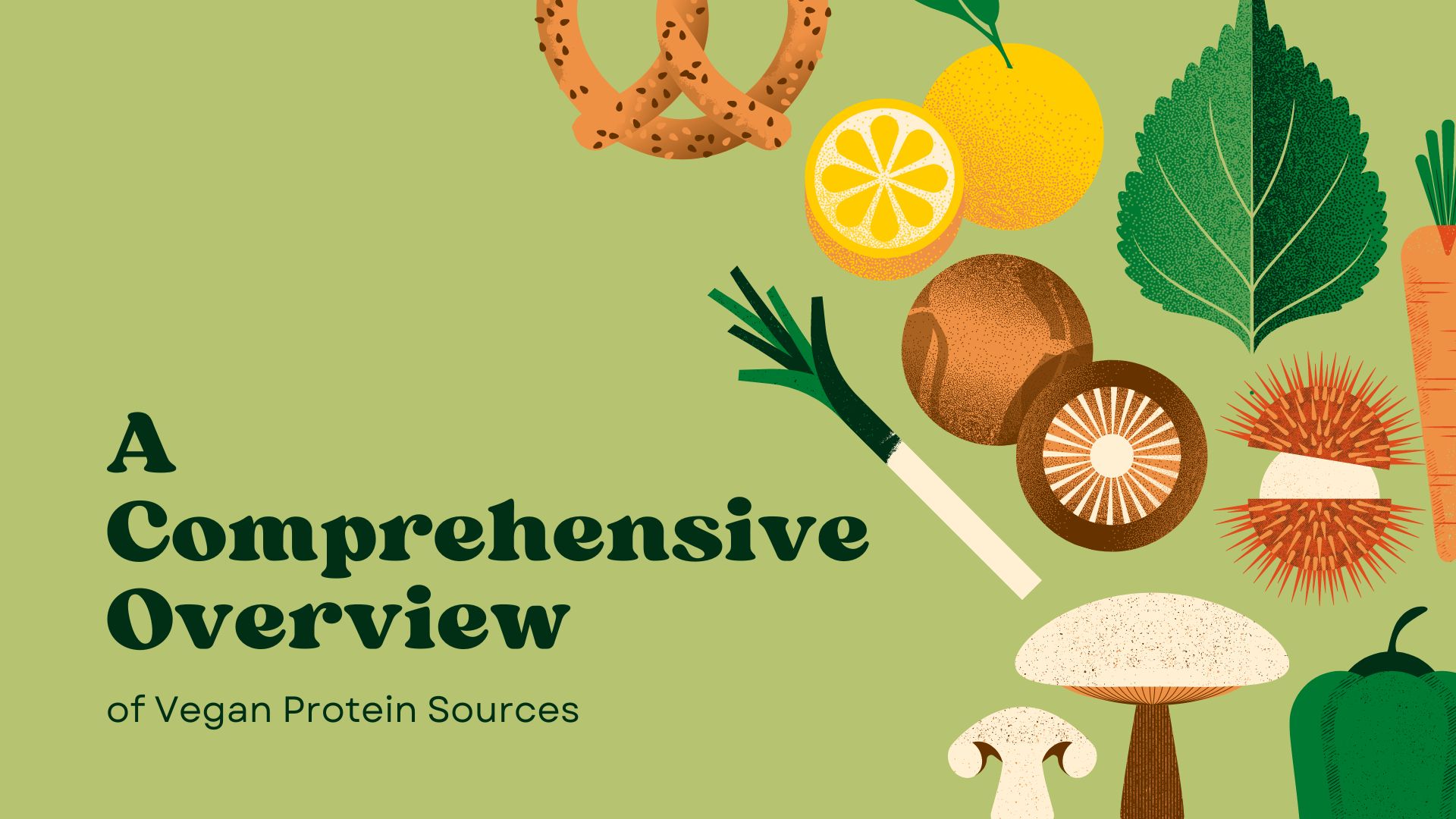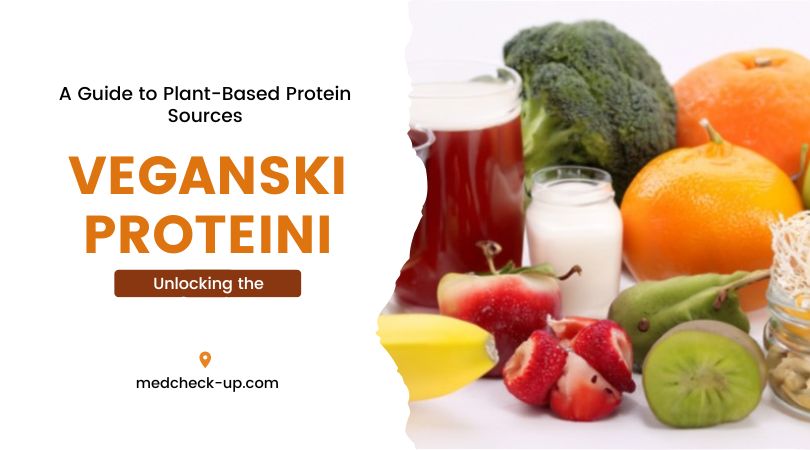In this article, we will explore the world of Veganski proteini, which are plant-based proteins derived from various sources. Whether you’re a dedicated vegan, vegetarian, or simply looking to increase your protein intake with sustainable options, these proteins offer a plethora of benefits. Let’s delve into the most common sources of vegan protein and learn how to incorporate them into your diet.
Sources of Veganski proteini
Soy Protein:
-
- Soy protein is a complete protein, boasting all nine essential amino acids required by the body. It can be found in versatile forms such as tofu, tempeh, edamame, and soy milk. Incorporating soy into your diet provides an array of health benefits.
Pea Protein:
-
- Another complete protein, pea protein is rich in Branched-Chain Amino Acids (BCAAs), crucial for muscle growth and repair. Pea protein is widely used in vegan protein powders, bars, and shakes.
Rice Protein:
-
- Low in fat and calories, rice protein is a good source of essential amino acids. It’s commonly found in vegan protein powders and snacks, making it a convenient choice.
Hemp Protein:
-
- Hemp protein not only offers complete protein content but also serves as an excellent source of omega-3 fatty acids. Its mild, nutty flavor enhances the taste of protein powders, bars, and shakes.
Chia Seeds:
-
- Chia seeds provide both protein and fiber, making them an ideal addition to smoothies, yogurt, or oatmeal to enhance your daily protein intake.
Benefits of Veganski proteini
Healthier Nutritional Profile:
-
- Compared to animal-based protein sources, veganski proteini are generally lower in saturated fat and cholesterol. This can be beneficial for heart health and managing cholesterol levels.
Increased Fiber Intake:
-
- Vegan protein sources are typically higher in fiber, promoting digestive health and aiding in weight management by keeping you feeling full for longer.
Potential Anti-Inflammatory Properties:
-
- Some vegan proteins, like chia seeds and hemp seeds, contain compounds with anti-inflammatory properties that may benefit individuals with chronic inflammatory conditions.
Choosing the Right Veganski proteini:

Checking Essential Amino Acids:
-
- When selecting a vegan protein powder, ensure it contains all essential amino acids for a complete protein profile.
Considering Personal Preferences:
-
- With a wide variety of vegan protein sources available, choose one that aligns with your taste preferences and dietary requirements.
Incorporating Veganski proteini into Your Diet
Protein-Packed Snacks:
-
- Snack time can also be an opportunity to boost your protein intake. Consider munching on roasted chickpeas, protein bars made with pea or rice protein, or a handful of nuts and seeds to keep hunger at bay while meeting your protein requirements.
Protein-Packed Breakfast Ideas:
-
- Start your day with a nutritious and protein-rich breakfast to fuel your morning. Enjoy a bowl of oatmeal topped with chia seeds, nuts, and berries, or try a tofu scramble seasoned with your favorite herbs and veggies.
Vegan Protein in Baking:
-
- Believe it or not, you can even incorporate vegan protein into your baked goods. Replace some of the flour in recipes with protein powder, such as using pea protein in muffins or cookies for an extra protein punch.
Additional Benefits of Veganski proteini:
Environmentally Friendly:
-
- Vegan protein sources are more sustainable and environmentally friendly compared to animal-based proteins. Choosing plant-based protein contributes to reduced greenhouse gas emissions, water usage, and land degradation.
Ideal for Lactose Intolerance:
-
- Veganski proteini are naturally free from lactose, making them a suitable option for individuals with lactose intolerance or dairy allergies.
Supports Weight Management:
-
- High-fiber content in vegan protein sources helps regulate appetite and may aid in weight management by promoting a feeling of fullness.
Potential Disease Prevention:
-
- Research suggests that plant-based diets, which include vegan protein sources, may reduce the risk of certain chronic diseases, such as heart disease, type 2 diabetes, and certain cancers.
Consulting a Registered Dietitian
While vegan protein offers numerous benefits, it’s essential to approach dietary changes thoughtfully. Consulting a registered dietitian or nutritionist can provide personalized guidance to ensure you meet your nutritional needs while following a plant-based diet. They can help you design a balanced meal plan that includes a variety of vegan protein sources, along with other essential nutrients.
Meal Planning for Optimal Nutrition:
Registered dietitians or nutritionists are trained to create personalized meal plans tailored to individual needs and preferences. When transitioning to a plant-based diet, they can assist in crafting well-balanced meals that not only incorporate diverse sources of vegan protein but also provide essential vitamins, minerals, and other nutrients.
Protein Diversity:
-
- Dietitians can recommend a mix of vegan protein sources to ensure you receive a wide array of amino acids. Combining different proteins, such as beans and grains, can enhance the overall amino acid profile of your meals.
Adequate Nutrient Intake:
-
- Along with protein, they will ensure you consume sufficient amounts of vitamins and minerals commonly found in animal-based foods. These may include vitamin B12, iron, calcium, zinc, and vitamin D, which can be more challenging to obtain in a plant-based diet.
Meal Timing and Frequency:
-
- Dietitians can advise on the optimal distribution of protein intake throughout the day to support muscle synthesis and maintenance. They may suggest dividing protein-rich meals evenly across breakfast, lunch, and dinner.
Hydration and Fluid Intake:
-
- Maintaining proper hydration is crucial for overall health. Nutritionists can help you choose hydrating vegan foods and beverages that complement your protein sources.
Leveraging Vegan Protein for Fitness:
For individuals who engage in regular physical activity or have fitness goals, vegan protein can play a vital role in enhancing exercise performance and supporting muscle recovery.
Pre-Workout Fuel:
-
- Incorporate protein-rich snacks before exercise to provide sustained energy and support muscle function during workouts. A combination of fruits and a vegan protein shake can be a great choice.
Post-Workout Recovery:
-
- After exercise, consuming a protein-rich meal or shake can aid in muscle repair and recovery. Plant-based protein powders, such as pea or hemp, are popular choices for post-workout nutrition.
Addressing Potential Nutrient Gaps:
While a well-planned vegan diet can be nutritionally adequate, some individuals may require additional supplementation to address specific nutrient needs. Registered dietitians can help identify potential deficiencies and recommend appropriate supplements, if necessary.
Vitamin B12:
-
- Vitamin B12 is predominantly found in animal products, and vegans may need to supplement to ensure sufficient intake. Dietitians can advise on the right form and dosage of B12 supplements.
Omega-3 Fatty Acids:
-
- While hemp and chia seeds provide omega-3s, dietitians may suggest incorporating algae-based omega-3 supplements for a more reliable source of EPA and DHA.
Iron and Calcium:
-
- Plant-based sources of iron and calcium can be less bioavailable than animal-based counterparts. Dietitians can recommend strategies to enhance absorption or suggest supplementation if needed.
Building a Sustainable Vegan Lifestyle:
Beyond nutritional considerations, dietitians can offer guidance on how to adopt a sustainable and eco-conscious approach to a vegan lifestyle.
Locally Sourced Foods:
-
- Encourage choosing locally grown and seasonal produce, reducing the carbon footprint associated with food transportation.
Reducing Food Waste:
-
- Tips on reducing food waste can be invaluable for both the environment and your wallet. Dietitians can share meal-planning techniques and creative ways to use leftovers.
Conclusion
Veganski proteini are not only a healthy and sustainable source of protein but also a versatile addition to any diet. From soy and pea to rice, hemp, and chia, these plant-based protein sources offer a wide range of flavors and textures to suit every palate. By incorporating vegan protein into your meals and snacks, you can meet your daily protein requirements while enjoying the benefits of a plant-based lifestyle.


